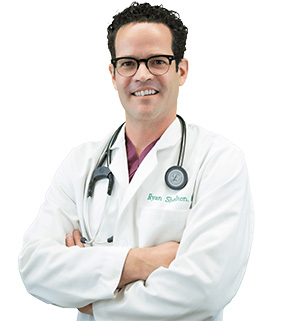Turning forty can be a bit of a shock but with age comes experience and, hopefully, wisdom. Unfortunately, getting older can also come with an increased risk for certain health problems. If you’re in the tail-end of your thirties or you’ve already gone over the hill, there are certain medical tests and health screenings you should take to make sure you stay healthy for decades to come.
The Top 10 Medical Tests to Take After 40
Though you should always keep an eye on your weight and activity level, these and other things become increasingly more important as you age. Keep reading to learn about the top ten medical tests and health screenings you should have after 40 to keep an eye on your health. Here they are:
- Blood pressure – The American Heart Association (AHA) recommends having your blood pressure checked at least once a year starting at age 20, but you should have it done more often as you get older. High blood pressure is a major risk factor for heart disease and stroke, so make sure you’re in the healthy range which is below 120/80 mm Hg.
- Blood lipid profile – A simple blood test is all you need to check your blood lipids – this includes LDL or “bad” cholesterol, HDL or “good” cholesterol, and triglycerides. These are also risk factors for heart attack and stroke, so have them checked at least once a year.
- Blood sugar – If you are obese or have a family history of diabetes, your risk of developing the condition is much higher. A fasting glucose test will give a good indication of whether or not you are diabetic, as can an A1C test and a review of symptoms such as frequent urination, increased thirst, and increased appetite.
- Eye exam – Even if you have never had to wear glasses, an annual eye exam is important to catch developing problems in the early stages. Once you hit 40, you should be tested annually for glaucoma and various forms of retinal
- Mammogram – Recommendations vary regarding mammograms for women – some say you should have them annually after age 40 while others say wait until 50. The American Cancer Society recommends annual breast cancer screenings for women between 45 and 54 with biennial screenings for women over 55.
- Pap smear – Women of childbearing age should receive an annual pap smear, but once you are done having kids, you may not go to your ob-gyn as often as you used to. Once you hit 40, however, it is recommended that you have a pap smear and an HPV test every 3 to 5 years. If you have multiple sexual partners, you may want to include an STD test as well.
- Skin exam – Prolonged sun exposure without protection can greatly increase your risk for skin cancer and other dermatological problems. By the time you hit 40, you’ve accumulated a lot of sun exposure, so it may be time for a skin exam. In fact, most dermatologists recommend annual exams.
- Thyroid test – It is estimated that as many as 13% of women between the ages of 35 to 65 have hypothyroidism or an underactive thyroid gland. When you hit 35, it is a good idea to have your thyroid function checked at least every 5 years – more often once you hit menopause.
- Mental health screening – Mental health problems like depression and anxiety can affect women at any age, but hormonal changes related to menopause might cause new problems to develop in your forties. Talk to your doctor about mood-related symptoms and consider a mental health screening.
- Dental exam – It is estimated that as many as 90% of people around the world have some level of gingivitis or other forms of periodontal disease. As you get older, you may develop dental problems that could increase your risk for gingivitis. Daily oral hygiene is important to prevent periodontitis, but you should also have a professional cleaning every 6 months.
When it comes to your health and wellness, you are your own strongest advocate. Make sure you see your doctor at least once a year and talk to him about the medical tests and health screenings from the list above. Even if they don’t show any developing problems, you’ll have peace of mind knowing that you are in the best of health. If they do show something, you’ll have hopefully caught it early enough to treat it properly.










